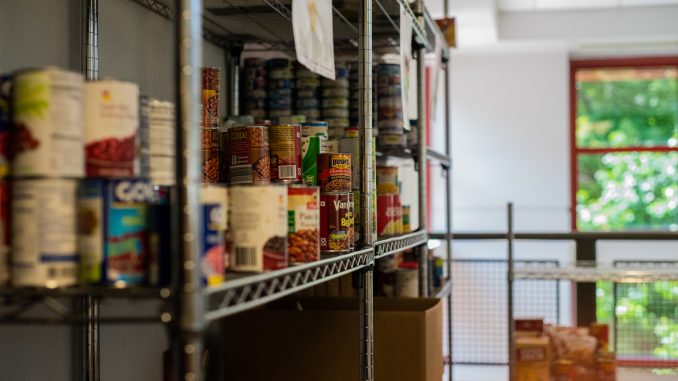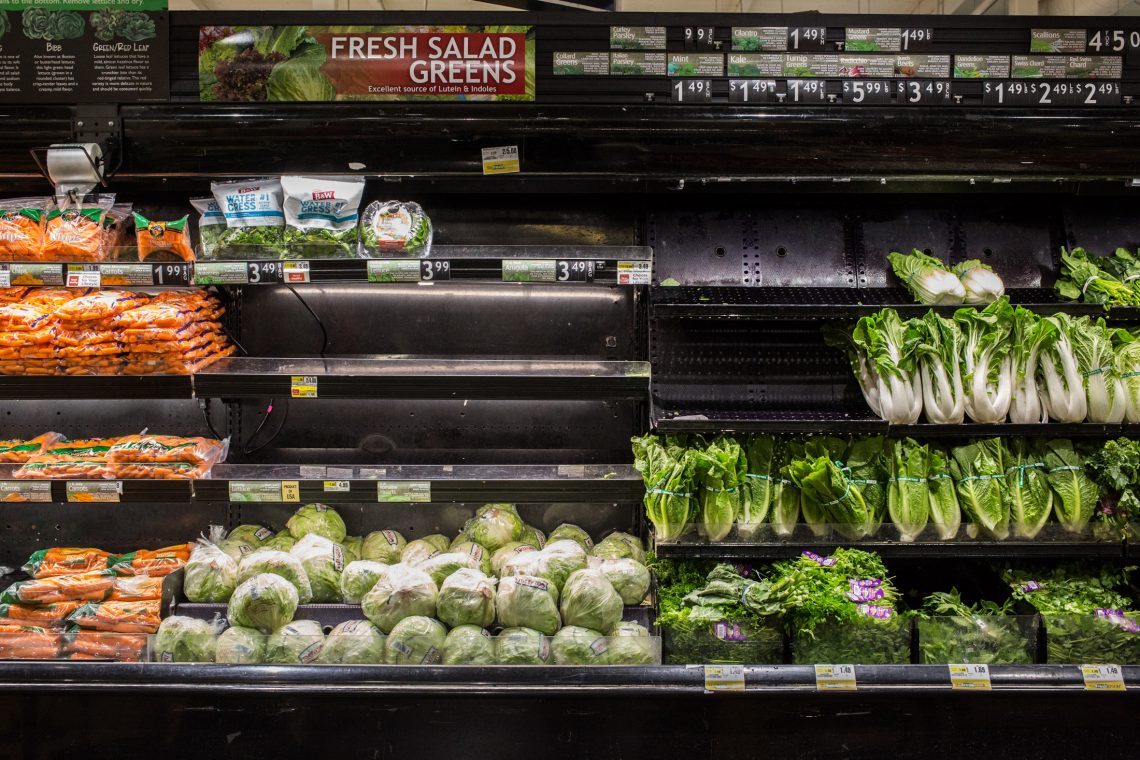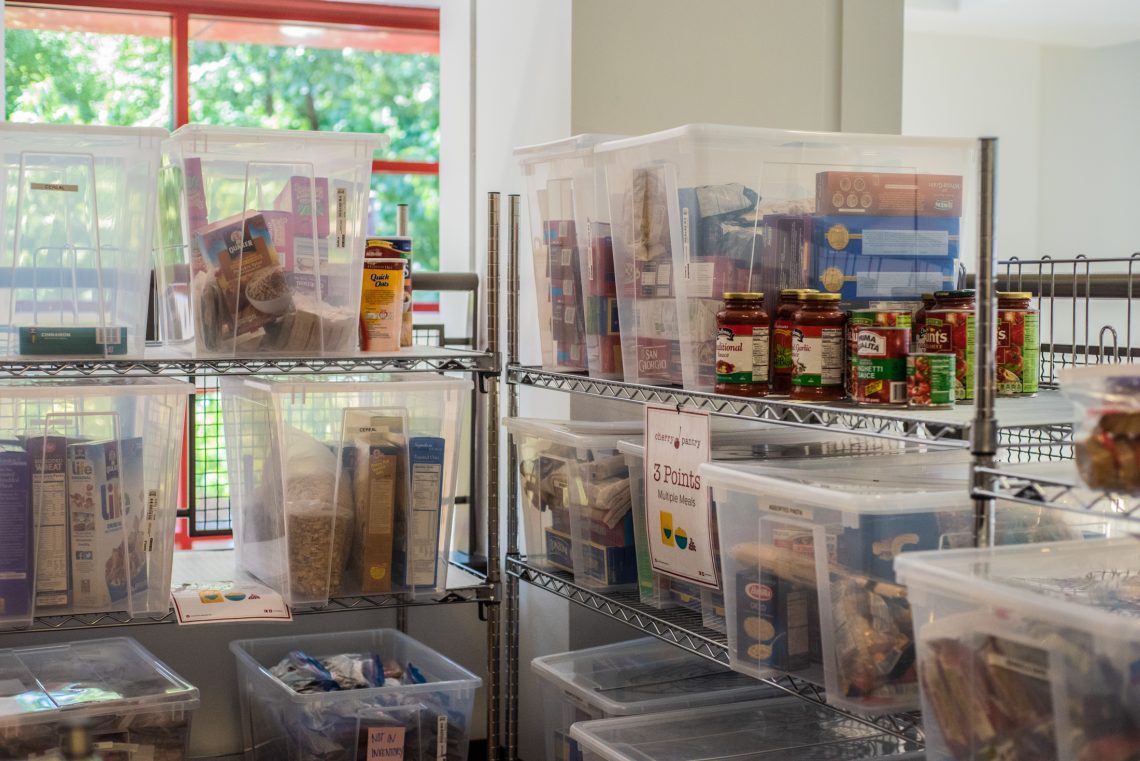
Updated on April 1, 2020 at 5:00 p.m.
Before she got her job at the Philadelphia Flower Show, Desiree Sawyer’s only source of getting food was Cherry Pantry, Temple University’s on-campus food pantry.
While working, she was able to buy her own groceries and expected to be transferred to work at the Philadelphia Zoo after the flower show was over.
But the zoo’s now closed due to the COVID-19 outbreak. Sawyer is back to relying on Cherry Pantry.
“I kinda need it a little bit more now,” said Sawyer, a junior actuarial science major.
The university moved to online-only instruction on March 11 for the remainder of the spring semester due the outbreak. The Student Center, where the Cherry Pantry was housed, also closed due to the outbreak. This forced the pantry to remain open and move its location on Main Campus. Some students are now having to adjust to the new availability to access food during the pandemic.

Prior to the transition to online classes, Cherry Pantry was housed on the second floor of the Student Center. It was open Tuesdays and Wednesdays 1-5 p.m. and Thursdays 4-8 p.m.
During online classes, the pantry, which has moved to the Temple Police substation in Morgan Hall South on Park Avenue near Cecil B. Moore. It will be open Tuesdays from 10 a.m. to 12 p.m. and Fridays from 3 p.m. to 5 p.m., according to a tweet from Temple Police.
Cherry Pantry, which relies on donations to supply students, will give students a “grab and go” grocery bag of food during its online classes hours, replacing its old system of letting students “shop” and pick products based on a point system. This limits the amount of social interaction between students and the pantry, which helps limit the spread of COVID-19.
The bags contain food items like oatmeal, cereal, canned protein, canned vegetables, soup, and fruit cups.
Sawyer wasn’t able to make it to the pantry during the first week of online classes. The new limited hours were either when she had class, or was just getting out of class, she said.
“This week I had leftover stuff, but I’m gonna try harder next week because it’s going to be a lot more difficult to get groceries myself,” she added.
In recent weeks, local grocers have seen an increased demand for food supplies as customers stock up during the spread of COVID-19, The Temple News reported.

PhilAbundance, a nonprofit organization on Galloway Street near Pattison Avenue, has a similar food map on their site.
Share Food Program, a nonprofit on Hunting Park Avenue near Henry, offers food programming during COVID-19 to community distribution sites around Philadelphia, according to their website.
Bebashi Transition to Hope, a nonprofit social services organization about a mile south of Main Campus on Spring Garden Street near 13th, has food pantry hours on Monday, Wednesday, Thursday and Friday 2-4 p.m. and Tuesdays 10 a.m. to 12 p.m., according to their Facebook account. .
In February, Temple’s Hope Center for College, Community and Justice released a revised national report that stated an average rate of 43 percent of students at four-year institutions were food insecure.
Amid the COVID-19 outbreak, the center released a report for colleges and universities recommending campus food pantries to work with local food banks and campus dining halls to communicate with students about alternative options before closing.
“The main message they need to hear is that they will have access to food,” the report stated.
University Housing and Residential Life sent an email to students on March 20 that meal plans for students who live off campus would stop March 20 and will be given prorated refunds by March 22. For those who were living on campus and had meal plans, refunds would be distributed by March 23.
Students who are staying on campus and have meal plans are able to eat at Morgan Hall’s dining hall, which now also has limited hours during online classes, according to a tweet from Temple Dining.
“In the transition through this, like, there’s been days where we’re not sure which hours and when things are open,” said Joseph Crespo, a junior financial planning major.

Crespo, who’s lost his student worker job at the pantry and was a residential assistant at the now-closed Johnson and Hardwick residence hall, also applied for a housing extension and has been relocated to live in Morgan Hall for the rest of the semester.
Because he’s an RA, he’s had a meal plan this year and hasn’t had to rely on the pantry as much as he did last year, Crespo said.
“I’ve kind of just went and bought food for myself, but thank god I have money right now but because I don’t have a job, and because I don’t know what’s coming and how much worse things are going to go, I have to, like, be very savvy at this moment,” he added.
Nick Carmack, a senior sociology major, said he was worried not all students were receiving the communication about the Cherry Pantry’s changed hours and location.
“Especially students like myself who don’t have Wi-Fi, which are the same students who are needing to use the pantry,” Carmack said.
Carmack, who formerly used Cherry Pantry and did outreach volunteer work for it, said he wished the pantry would have a team of employed staff, who could then organize food delivery to students during online classes.
“This is a basic need that aren’t being met for students,” he said. “And because we’re in a crisis right now and everything’s changing, very different tactics need to be used to provide that basic need for students. And that’s not happening and that’s alarming.”

Julia Olszewski, a freshman history and cultural anthropology major, used a weekly meal plan and Cherry Pantry while she was living in Morgan Hall for the first half of the semester.
“I already didn’t really know where it was, and then like switching it again, would just kind of be like ‘Oh my god, like, where is it?’” she said.
Olszewski’s now moved home to Roxborough, where she has access to food with her family. Still, she’s concerned for her peers who are staying around campus and relied on now-terminated meal plans, as they’re a “major source for a lot of people,” she added.
CORRECTION: A previous version of the article did not accurately reflect the conditions in which Cherry Pantry moved its operations. It also did not include details as to why the pantry moved to a “grab-and-go” operation. This article has since been edited for accuracy and clarity.


Be the first to comment